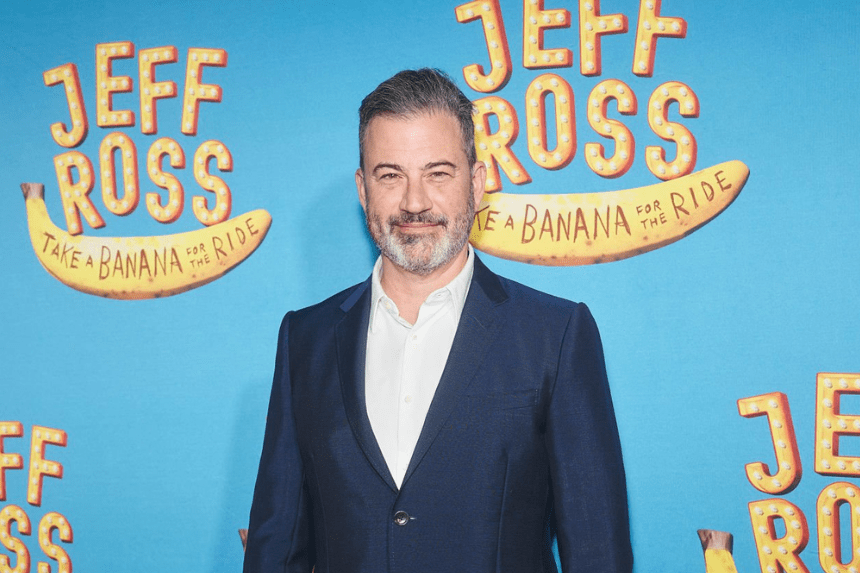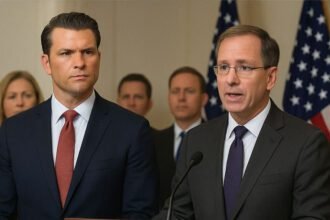In a growing controversy surrounding media freedom, former U.S. President Donald Trump has called for TV networks critical of him to lose their broadcasting licences, possibly. This comes amid the suspension of late-night host Jimmy Kimmel, following remarks he made about the politically charged murder of conservative figure Charlie Kirk.
ABC, owned by Disney, suspended Kimmel “indefinitely” after he appeared to blame a MAGA supporter for the crime. However, authorities reported the suspect had ties to leftist ideology. The incident quickly escalated as the Federal Communications Commission (FCC) warned of potential action against the network.
During his return from a state visit to the United Kingdom, Trump claimed TV networks show overwhelming bias against him. He questioned whether such platforms should retain their licences while attacking his character and policies. “They give me only negative coverage, and they’re still licensed broadcasters,” Trump stated.
Why Did ABC Suspend Jimmy Kimmel?
ABC acted swiftly after Kimmel made a controversial statement linking the gunman to the MAGA movement. His monologue criticized conservative reactions and drew parallels between Trump’s response to Kirk’s death and a child mourning a pet.
Following public backlash and FCC scrutiny, ABC took Jimmy Kimmel Live! Off the air. Nexstar Media, which owns many U.S. affiliates, also announced it would no longer carry the show. Here is the link to our article on Indigenous Politics Urgency.
What Is the FCC’s Role in This Case?
The free speech debate deepened after FCC Chair Brendan Carr indicated the suspension might be the beginning of broader accountability for broadcasters. He emphasized that networks must serve public interest standards — or risk losing their licences.
However, legal experts maintain that the First Amendment protects against government retaliation over political speech. The FCC can regulate public airwaves, but holds little control over cable, podcasts, or streaming platforms.
How Did Public Figures Respond?
Kimmel’s suspension drew a wave of responses across the political spectrum. Prominent Democrats, including former President Barack Obama, labeled the move an attack on free speech and an example of state-driven censorship.
Hollywood actors and writers rallied behind Kimmel. Colleagues from rival networks publicly supported him, calling the decision “blatant censorship.”
Others took a different stance. Media entrepreneur Dave Portnoy argued this wasn’t cancel culture but a case of accountability. Critics, including international media figures, accused Kimmel of spreading misinformation about the suspect’s political motives. Here is the link to our article on Hindi Language Politics.
What Happens Next for Broadcasters?
The FCC’s position is likely to influence how major networks handle politically sensitive commentary. Nexstar, currently seeking regulatory approval for a $6.2 billion merger with Tegna, was praised by the FCC for its swift action.
Meanwhile, Sinclair — the largest ABC affiliate group — replaced Kimmel’s show with a tribute to Kirk. His widow, Erika Kirk, has since taken leadership of the organization he co-founded, Turning Point USA.
A 22-year-old suspect has been charged with aggravated murder, and prosecutors have signaled intent to pursue the death penalty.
Final Thoughts
The suspension of Kimmel has sparked a renewed debate around free speech, media regulation, and political influence in the U.S. While some argue it reflects necessary accountability, others see it as a troubling sign of government overreach. The controversy highlights growing public concern over the limits of expression in broadcast media. At the core is a pressing question: how much control should the government have over critical voices? The resolution of this case could have lasting implications for the future of American media and the fundamental principle of free speech.








